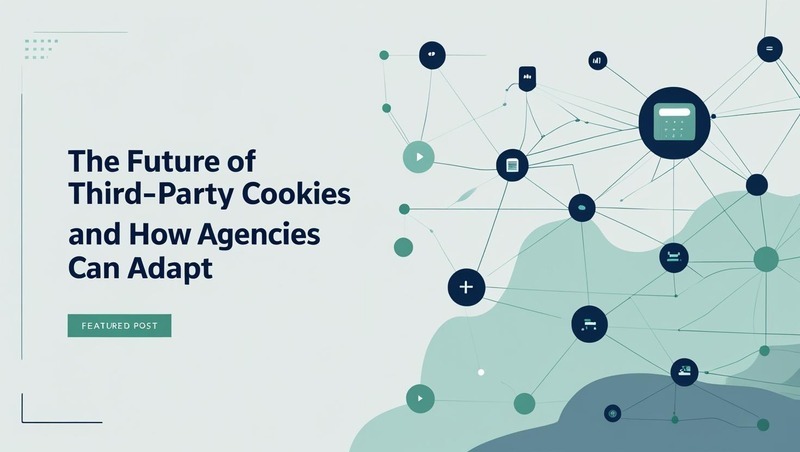The Future of Third-Party Cookies and How Agencies Can Adapt
The digital marketing world is undergoing one of its most significant transformations in decades. Third-party cookies, once the backbone of online advertising and user tracking, are being phased out. Major browsers like Google Chrome (set to deprecate third-party cookies fully), Mozilla Firefox, and Apple Safari have already taken significant steps towards blocking them. This shift is driven by rising concerns over user privacy, data security, and evolving regulatory frameworks such as GDPR and CCPA. For agencies, adapting to this new reality is not optional — it is essential for survival and future success. Boost your online store’s visibility with expert SEO for shopify bradford. Drive traffic, improve rankings, and grow your eCommerce business today!
The Decline of Third-Party Cookies
Third-party cookies have long been used to track user behaviour across websites, enabling advertisers to deliver personalized experiences and highly targeted ads. However, the same technology has raised alarms about intrusive tracking and misuse of personal data. With growing awareness and concern about privacy, consumers are demanding greater transparency and control over their data.
In response, tech giants and regulators have acted. Google announced plans to phase out third-party cookies in Chrome by 2024 (now underway), while Firefox and Safari have already implemented stricter controls. This marks the end of an era for cookie-based advertising models and forces agencies to rethink their data strategies. Boost your website’s visibility with a Wix SEO expert who can optimize your site for higher rankings, better traffic, and a stronger online presence.
Implications for Digital Agencies
For digital agencies, the phase-out of third-party cookies presents both challenges and opportunities. Traditional retargeting campaigns, cross-site tracking, and lookalike audience building will become less effective or obsolete. Attribution models that rely heavily on third-party data will need reengineering.
On the positive side, this shift opens the door for agencies to innovate, build trust with consumers, and lead the way in privacy-first marketing. Agencies that can pivot quickly will gain a competitive advantage in an increasingly privacy-conscious market.
Strategies for Agencies to Adapt
1. Prioritize First-Party Data
First-party data — information collected directly from users through owned channels like websites, apps, email lists, and CRM systems — will be the new gold standard. Agencies should help clients develop robust first-party data strategies, including:
- Enhancing user experiences to encourage data sharing.
- Building loyalty programs, gated content, and personalized offers.
- Investing in CRM platforms and customer data platforms (CDPs) to manage and activate data effectively.
2. Embrace Privacy-First Technologies
Agencies should stay ahead by adopting privacy-focused technologies such as Google’s Privacy Sandbox, contextual targeting solutions, and federated learning systems. These tools aim to deliver relevant advertising without compromising user privacy. Learning to work with these emerging standards is critical.
3. Leverage Contextual and Semantic Targeting
With behavioural targeting on the decline, contextual advertising is making a comeback. Agencies should refine their skills in placing ads based on the content and context of a page rather than user behaviour. Advances in natural language processing (NLP) and AI can help deliver more precise contextual targeting.
4. Rethink Measurement and Attribution
Agencies will need to explore alternative attribution models that do not rely on third-party cookies. Solutions such as media mix modelling, incrementality testing, and first-party data-driven attribution should be explored. Partnering with analytics providers that offer privacy-compliant solutions will be crucial.
5. Strengthen Client Education and Communication
As the landscape changes, clients will look to their agency partners for guidance. Agencies should proactively educate clients about the implications of cookie deprecation and the benefits of adopting new strategies. Transparent communication will help build trust and position agencies as forward-thinking advisors.
The Role of Agencies in Shaping a Privacy-First Future
Agencies have a unique opportunity to lead the charge in creating a more ethical and privacy-respecting advertising ecosystem. By prioritizing user consent, transparency, and value-driven engagement, agencies can help reshape the digital marketing industry. This approach not only meets regulatory requirements but also aligns with growing consumer expectations for respect and integrity.
SEO Considerations for a Cookie-Free World
As third-party cookies disappear, SEO will play an even greater role in reaching target audiences. Here are key areas agencies should focus on:
- Content Quality and Relevance: High-quality, authoritative content will help attract organic traffic and build brand trust.
- Technical SEO: Ensure that websites are fast, secure (HTTPS), mobile-friendly, and accessible.
- User Experience (UX): Search engines increasingly prioritize user-centric design. Good UX will improve rankings and reduce bounce rates.
- Schema Markup and Structured Data: These help search engines better understand and display content, enhancing visibility in search results.
- Local SEO: For location-based businesses, local SEO strategies will be vital, especially as hyper-personalization becomes more difficult without cookies.
